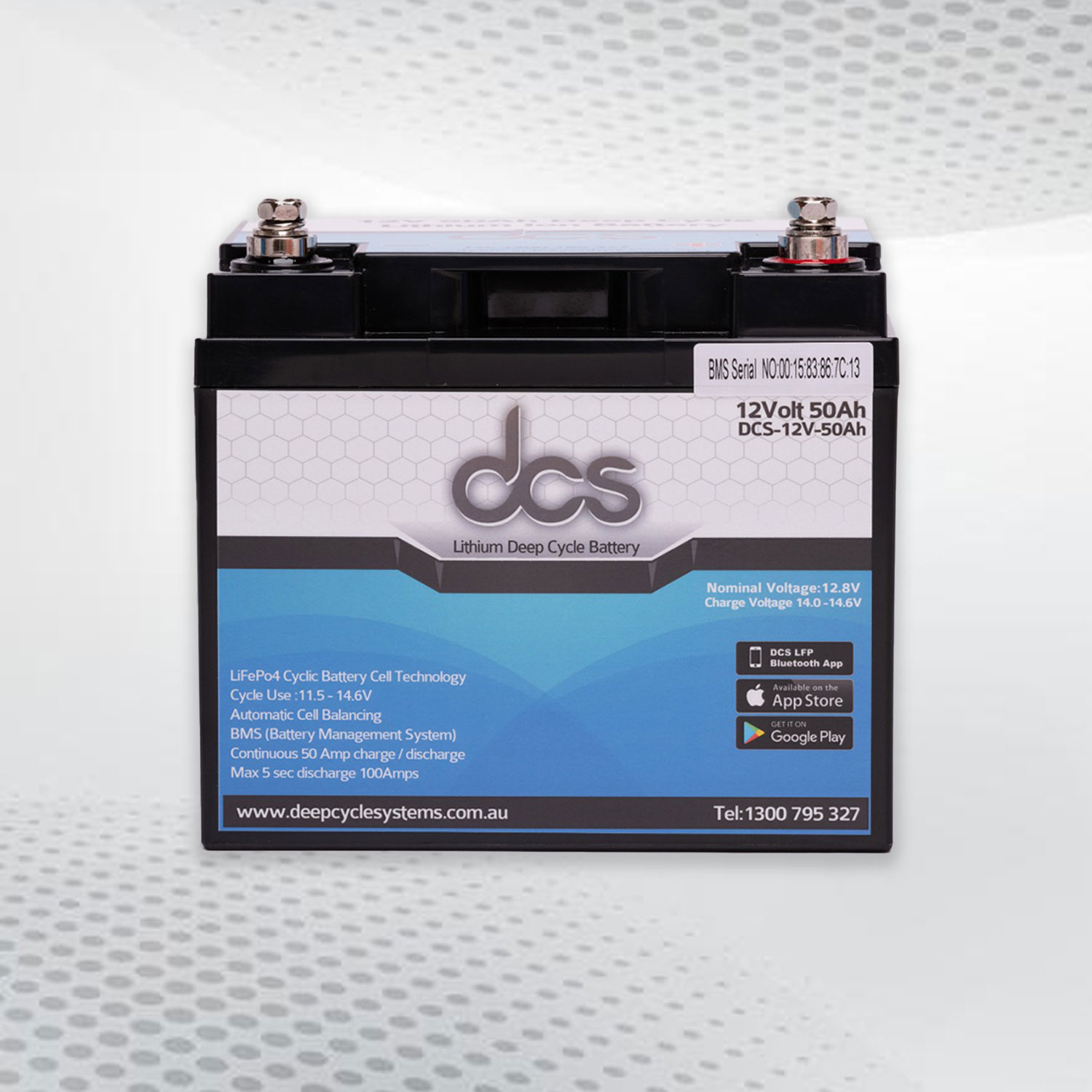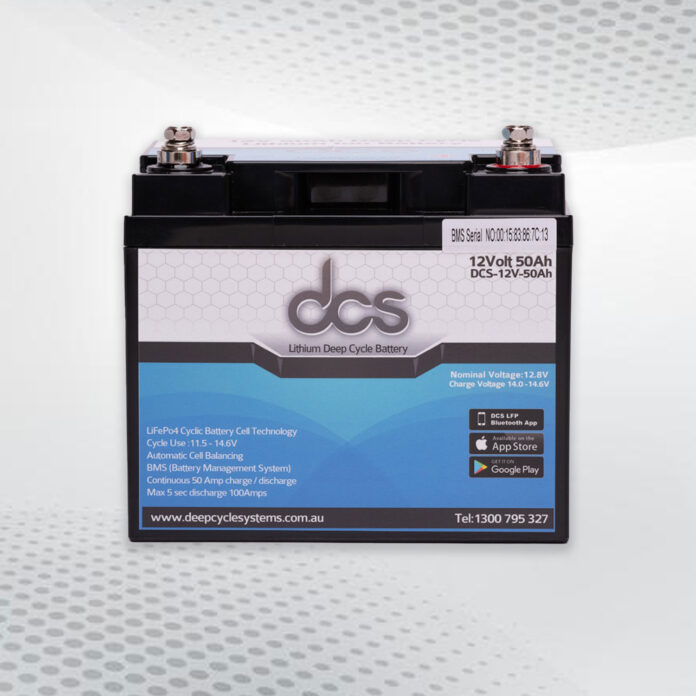In the evolving landscape of energy storage, Lithium Deep Cycle Battery stand as a beacon of efficiency, power, and resilience. As industries and individuals alike seek sustainable and reliable energy solutions, understanding the nuances of these advanced batteries becomes paramount. This comprehensive exploration delves into the core of lithium deep-cycle batteries, comparing them to their lead-acid counterparts highlighting their integration with renewable energy systems, among other applications.
An Introduction To Lithium Deep-Cycle Batteries
Lithium deep-cycle batteries represent a pivotal advancement in energy storage solutions. Engineered for enduring and recurrent deep discharge cycles, these batteries are quintessential for scenarios demanding comprehensive utilisation and frequent recharges. Lithium-ion technology is Central to their operation, celebrated for its substantial energy density, negligible memory effect, and minimal self-discharge rate. Such attributes render lithium deep-cycle batteries supremely suited for many applications, spanning from the storage of renewable energy to powering electric vehicles, among others.
Unlike their lead-acid precursors, these batteries are constructed to sustain extensive use over time, thereby offering a more reliable and efficient energy storage option. Their intrinsic characteristics make them essential in modern energy systems, aiming to meet the growing demands for sustainable and robust energy solutions across various sectors.
Advantages Over Traditional Lead-Acid Batteries
Lithium deep-cycle batteries exhibit many benefits when juxtaposed with their lead-acid predecessors, marking a significant leap forward in energy storage technology. A paramount advantage lies in their superior energy density; lithium batteries can store considerably more energy within the same physical space. This attribute is especially critical in environments where spatial constraints and weight are pivotal considerations.
Furthermore, these batteries have an enhanced lifespan, typically two to three times longer than lead-acid batteries under analogous conditions. The rapid charging capabilities of lithium batteries far outstrip those of lead-acid variants, coupled with their ability to withstand high discharge rates without substantial degradation.
Additionally, the maintenance demands for lithium batteries are markedly lower, negating the necessity for frequent water top-ups—a common requirement for maintaining lead-acid batteries. These distinguishing features underscore the efficiency and reliability of lithium deep-cycle batteries and highlight their versatility across a broad spectrum of applications, from mobile to stationary energy solutions.
Deep Cycle Lithium Battery Can Optimising Battery Performance For Maximum Efficiency
Optimising the performance of Deep Cycle Lithium Battery for maximum efficiency is crucial in extending their operational lifespan and enhancing the overall energy output. This process involves several key strategies, including precisely calibrating charging parameters to match the battery’s specifications. Ensuring that charging voltages and currents are ideally suited to the battery’s needs avoids unnecessary strain, thus preserving its integrity over time.
Additionally, implementing a sophisticated Battery Management System (BMS) is pivotal in achieving peak performance. A BMS monitors and regulates the battery’s state of charge, temperature, and voltage levels among cells, preventing overcharging, deep discharging, and overheating, which can harm battery health.
Regular monitoring and maintenance also contribute significantly to optimising battery efficiency. By monitoring performance metrics and conducting periodic health checks, potential issues can be identified and addressed promptly, averting compromised efficiency.
Incorporating these practices ensures that deep-cycle lithium batteries operate optimally, providing reliable and sustained energy storage solutions. Such meticulous attention to detail not only maximises the performance of these batteries but also solidifies their role as a cornerstone in advancing energy storage technologies.
Integration With Renewable Energy Systems
The seamless fusion of lithium deep-cycle batteries with renewable energy installations marks a pivotal stride towards harnessing the full potential of green energy sources such as solar and wind power. These batteries emerge as indispensable allies in capturing the surplus energy generated during peak productivity. This stored power is crucial, providing a steady and reliable energy supply when natural conditions fail to produce sufficient energy or when demand surges unexpectedly. The capability of lithium deep-cycle batteries to store large amounts of energy efficiently reduces the wastage of renewable resources and bolsters the resilience and independence of energy systems.
Off-grid and microgrid configurations, in particular, benefit immensely, achieving a newfound autonomy and diminishing their reliance on conventional energy grids. The adaptability of these batteries to various scales of renewable energy projects underscores their versatility and crucial role in the transition towards more sustainable energy infrastructures worldwide. This integration makes the path towards a more sustainable, reliable, and efficient energy future increasingly tangible, showcasing the symbiotic relationship between advanced battery technology and renewable energy sources.
Lithium Batteries For Marine Applications
In the demanding environment of marine applications, selecting energy storage solutions is critical. Lithium deep-cycle batteries have emerged as superior candidates, offering distinct advantages suited to the challenging conditions at sea. These batteries are characterised by their compactness and lightweight nature, a significant boon in environments where space is at a premium and additional weight impacts performance adversely.
Their resilience to harsh conditions, including saltwater exposure, and the ability to maintain consistent power output under varying loads ensure that maritime operations can proceed without interruption. The high energy density of these batteries translates into longer usage periods between charges, a critical factor for vessels undertaking prolonged voyages. Moreover, the fast recharging capability minimises downtime, enhancing operational efficiency on watercraft.
The reliability and extended lifespan of lithium deep-cycle batteries, compared to traditional alternatives, provide marine applications with a dependable power source, reinforcing safety and continuity in maritime activities. This integration of lithium technology into marine energy systems reflects a commitment to advancing the efficiency and sustainability of power solutions in the nautical sector.
Future Developments And Innovations In Lithium Battery Technology
The horizon of lithium battery technology is adorned with promising advancements as researchers and developers worldwide strive to push the boundaries of what’s currently achievable. Solid-state batteries are among the most anticipated developments, which eschew the traditional liquid electrolyte for a solid counterpart. This innovation not only enhances the safety profile of lithium batteries by removing flammable liquid components but also aims to significantly boost energy densities, enabling storage of more power in the same-size battery. Meanwhile, the quest for sustainability in battery production and lifecycle is gaining momentum.
 Initiatives focused on minimising the environmental impact encompassing the refinement of raw material sourcing, aiming to make it more ethical and less damaging to the environment, and advancing recycling technologies. These efforts seek to improve the circularity of lithium battery components, ensuring that valuable materials are recovered and reused, thus diminishing the ecological footprint of these essential energy storage devices. Concurrently, research into reducing reliance on cobalt, a controversial and expensive material, by exploring alternative chemistries promises to make lithium batteries more sustainable and accessible.
Initiatives focused on minimising the environmental impact encompassing the refinement of raw material sourcing, aiming to make it more ethical and less damaging to the environment, and advancing recycling technologies. These efforts seek to improve the circularity of lithium battery components, ensuring that valuable materials are recovered and reused, thus diminishing the ecological footprint of these essential energy storage devices. Concurrently, research into reducing reliance on cobalt, a controversial and expensive material, by exploring alternative chemistries promises to make lithium batteries more sustainable and accessible.
Revolutionizing Energy Storage: The Versatility Of 12V Lithium Ion Batteries
In pursuing adaptable and efficient energy solutions, 12V Lithium Ion Batteries are emerging as a cornerstone in the energy storage landscape. These units, celebrated for their versatility, find applications in many environments, from the remote corners of off-grid living to the high demands of recreational vehicles and marine applications. The pivotal advantage of 12V lithium-ion batteries lies in their compact design and remarkable energy density, enabling substantial power storage without excessive weight or volume. This aspect is particularly beneficial in settings where space conservation and efficiency are paramount.
Furthermore, their robustness and ability to deliver consistent performance across various temperatures make them an ideal choice for challenging outdoor applications. Integrating these batteries into various systems underscores their adaptability, providing a reliable power source that enhances the functionality and autonomy of energy-dependent operations. As the energy sector continues to evolve, the role of 12V lithium-ion batteries in facilitating sustainable and versatile energy storage solutions is increasingly recognised, marking them as a key component in advancing energy technologies.
Charging Forward: Lithium Batteries For Automotive Applications
The transition towards electric vehicles (EVs) represents a significant shift in the automotive sector, driven by a collective endeavour to reduce carbon emissions and enhance sustainability. Lithium deep-cycle batteries are at the heart of this transformative journey, heralding a new era in vehicle design and performance. These power units afford several distinct advantages over traditional options, most notably their superior energy density. This characteristic ensures that EVs powered by lithium batteries benefit from extended range capabilities, a critical factor in accelerating the adoption of electric mobility. Additionally, the lower weight of lithium batteries contributes to improved vehicle efficiency, further optimising energy consumption and performance.
Fast charging times are another critical advantage, addressing one of the primary concerns regarding EV practicality for consumers. This feature significantly reduces downtime, making electric vehicles more compatible with the dynamics of modern living. The automotive industry’s pivot towards these advanced energy storage solutions is pivotal in driving the vision of a sustainable, emission-free transportation ecosystem. The sector is charting a course towards a greener, more efficient future through continuous innovation and integration of lithium deep-cycle batteries.
FAQs
What Distinguishes Lithium Deep-Cycle Batteries From Other Battery Types?
Lithium deep-cycle batteries are renowned for enduring numerous discharge cycles down to a low charge without significant degradation. This resilience, combined with a high energy density and a low self-discharge rate, sets them apart from traditional battery types, making them highly suitable for applications requiring reliable and long-lasting energy storage.
How Environmentally Friendly Is Lithium Deep Cycle Battery?
Lithium Deep Cycle Battery is considered more environmentally friendly than their lead-acid counterparts due to their longer lifespan and the absence of heavy metals that are toxic to the environment. Advances in recycling processes and efforts to minimise the use of problematic materials like cobalt further enhance their environmental profile.
Can Lithium Deep-Cycle Batteries Be Used With Existing Lead-Acid Battery Systems?
It is technically possible to integrate lithium deep-cycle batteries with systems designed for lead-acid batteries, but it requires careful consideration of voltage compatibility and charging profiles. An expert consultation is recommended to ensure safe and efficient integration. What Is The Expected Lifespan Of A Lithium Deep-Cycle Battery?
The lifespan of a lithium deep-cycle battery typically ranges between 5 to 15 years, depending on the usage patterns, depth of discharge, and adherence to recommended maintenance practices. This represents a significant improvement over lead-acid batteries.
Are There Any Safety Concerns Associated With Lithium Deep-Cycle Batteries?
Lithium deep-cycle batteries are generally considered safe but require proper handling and installation to mitigate risks such as thermal runaway. Including a Battery Management System (BMS) is crucial for monitoring battery health and ensuring operational safety.
Conclusion
In summary, the exploration of Lithium Deep Cycle Battery unveils a transformative advancement in energy storage solutions. These batteries, characterised by their high energy density, longevity, and compatibility with renewable energy sources, have irrefutably established themselves as a pivotal component in the transition towards more sustainable and efficient energy systems. Integrating such batteries across various sectors, including automotive, marine, and renewable energy, signifies a collective stride towards minimising carbon footprints and enhancing the reliability of power sources in diverse environments.
| Related Business Listings |
| Contact Directory |
| Local Business Profiles |
